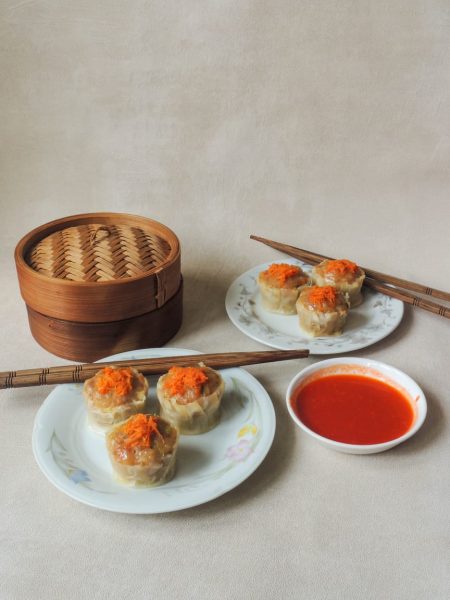Small Food Businesses
It has been more than a year since the COVID-19 pandemic started. Many people lost their jobs, some are having a hard time getting a new one.
Likely, all that’s left is to think about how we are going to survive in the coming years. However, it’s in great hopelessness that creativity is evolving. Take a look at fresh graduates. Young entrepreneurs are beginning to rise during this pandemic. Why is it that they are eager to open a new business instead of getting a job? Why does it seem to be trending among the youth to dive into the world of business, especially in food and beverage? Why are they not afraid of competition?
As a fresh graduate myself, and a business owner of Schotel Mami, I can hopefully tell you what has been going on since the pandemic started. The majority of us are facing a quarter-life crisis. It has been hard for us to find a job, or if we do, they can’t pay us fully or it is only part-time.
Opening a small business is something that we are eager to fight for. Having no background in business studies barely hinders us from starting one. It is actually an opportunity for us to learn a lot more than what we have studied before, such as learning how to cook, hygiene requirements when producing food, and, of course, marketing the product.
“I never really thought that the pandemic was really a problem. In fact, I think it’s the opposite; the pandemic is a great opportunity as everyone faces the same main problem,” said Helen, owner of Hangri Dessert selling fine dessert bowls.

Melinda, 23, owner of Melth Bakes, said that it has been hard to get a job even though she tried applying countless times. Opening up her own business actually means she has made quite an income, even more than the average regional minimum wage for fresh graduates working 9-5.
“I love the free working hours, I’m not a morning person so waking up a little late in the morning and working flexible hours keeps me at peace,” she said.
Indeed, having full control of time and full profit without having to pay the tax or (at least yet), has its own satisfaction in our hearts.
Other than that, selling food comes at a higher risk during this time. It is a big responsibility for us sellers to know the quality of the ingredients and hygiene processes while producing them. All the ingredients chosen must be safe to be consumed. We spend a lot of time on it; jotting down recipes and deciding what is best for our customers. It is also risky and challenging for us sometimes to constantly produce the same quality over and over.
Keeping health protocols a priority and making sure that our customers know that they can trust us to buy our products are vital as well. “I wear gloves and always wash my hands, keep my station clean, tie my hair, even wear a hairnet,” Melinda stated.
“The packaging must always be tied tightly so that upon delivery, it ensures safety and cleanliness,” Helen added.

Small details like this are maybe taken for granted by some. Thus, the pricing of small business products may not be as cheap as we thought it would. We concurrently do several different tasks by ourselves, from cooking, marketing, ensuring hygiene, transportation, safety, and customer relations. It is not a mass production that we can just look down upon; more people need to appreciate the hard work that goes behind it.

“From the word ‘small’, it means I am quite invisible in the business world without any safety nets. It is harder to climb, the risks are bigger, and the work is double as we are by ourselves,” said the 22-year-old owner of Shumai Yum, Michelle.
How do all these small business owners survive despite the increasing number of small businesses? “There will always be people doing business, especially in food and beverage. It is important to always stick with your vision and style. Focus on yourself,” Melinda stated. “I learned a lot from fellow bakers too; we share things and we even give input to one another so that we can grow together.”
While for Helen, 18, she decided to make her food product stand out by selling healthy options for desserts. “We sell tiramisu bowls that have gluten-free cream and with no additional eggs, which make them lower in calories and cholesterol,” Helen explained.
It is also important to see what is happening in society and tell stories about our product to attract customers. “The phenomenon of feeling guilty when eating desserts must be taken seriously. As a seller, I want to create awareness that it’s okay to eat them in moderation. Hopefully, our dessert can make the customers fully enjoy it without feeling any guilt,” she added.
You can have the best recipe, exquisite quality and tasty food, business plans, and financial support, yet obstacles will be faced along the way. Small business owners like us still get very anxious about whether we are going to make it or if the business is worth keeping.
“You have to do your research thoroughly and learn from other businesses too, trust your guts and not what other people say negatively about you, your food products, and your business. You know yourself the best,” Melinda added.
With the existence of social media and the internet, it has been a very helpful tool to learn more about what goes into the culinary world. “Sometimes, when you feel stuck, just do some research. I like to learn from YouTube or webinars about cooking, baking, and food businesses. Networking also matters, so it’s time for you to use that skill. From there, I usually gain more confidence and get more insights,” added Melinda.
Being in the culinary world is more than just how good the food is, but also how you can conquer all the obstacles behind it. The word “small” in this matter also means that we have bigger responsibilities that we need to handle on our own. Thus, we need to support one another.
“It’s actually not hard to support us. We don’t need you to always buy our products as we also understand that sometimes people want to try different foods. But you can always try to share our posts online, engage with us on social media platforms, and share them on your Instagram story. We are also very happy if our customer can give us suggestions on what to sell, that is one way that we get free advice!” Michelle added.
All in all, a good opportunity comes to us amid hopelessness. We are keen to embark on this exciting ride in the culinary world, even when the pandemic is over.
Check out these food Instagram accounts:
- Schotel Mami https://www.instagram.com/schotelmami/
- Shumai Yum https://www.instagram.com/shumai.yum/
- Melth Bakes https://www.instagram.com/melthbakes/
- Hangri Dessert https://www.instagram.com/hangridessert/




